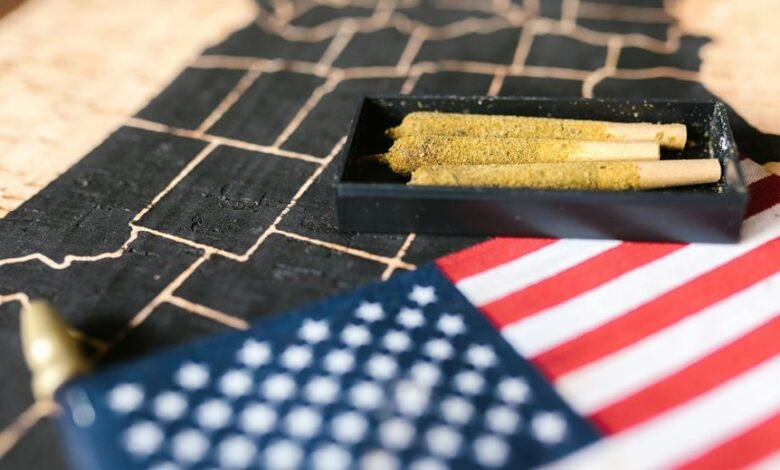States Where Cbd Is Legal

The legality of CBD varies significantly across the United States. While several states have fully embraced its use, allowing for the sale of hemp-derived products with less than 0.3% THC, others maintain restrictions. This patchwork of regulations reflects differing state attitudes toward CBD's potential benefits and risks. Understanding these variations is crucial for consumers and businesses alike, as it shapes the market landscape and influences accessibility. What implications do these laws hold for future CBD developments?
Overview of CBD Legality in the U.S
As the landscape of cannabis legislation evolves, the legality of cannabidiol (CBD) in the United States remains a complex issue influenced by federal and state regulations.
Despite growing recognition of its health benefits, market trends reflect a patchwork legal framework.
Variations in state laws create challenges for consumers and businesses, complicating access and understanding of CBD products across different jurisdictions.
States With Full Legalization of CBD
While the federal government has established a legal framework for CBD derived from hemp, individual states have taken varying approaches to its regulation.
Full legalization states permit the unrestricted sale and use of CBD products, greatly enhancing product availability.
These states recognize the potential benefits of CBD, allowing consumers greater freedom to access diverse formulations and promote personal wellness without legal hindrance.
States With Restricted CBD Use
Although many states have embraced the use of CBD, several maintain restrictions that limit its availability and use.
These states often impose medical limitations, requiring users to obtain prescriptions or meet specific health criteria. Consequently, individuals face restricted access, hindering their ability to utilize CBD for therapeutic benefits.
This regulatory environment creates disparities in treatment options across different regions, impacting patient freedom significantly.
Understanding Federal Regulations on CBD
Understanding the complexities of federal regulations on CBD reveals a landscape shaped by both legislative intent and regulatory oversight.
Federal guidelines classify CBD derived from hemp as legal, provided it contains less than 0.3% THC. However, this classification is nuanced by state laws, leading to varying interpretations and enforcement.
Thus, stakeholders must navigate this intricate framework to ensure compliance and pursue freedom in CBD utilization.
Conclusion
In conclusion, the landscape of CBD legality in the United States is a dynamic tapestry, woven with threads of full legalization and intricate restrictions. While some states bask in the liberating glow of unrestricted access, others remain cloaked in limitations, echoing the complexities of federal regulations. As consumers venture into this burgeoning market, they must navigate the shifting sands of legal frameworks, ensuring that their quest for health and wellness does not collide with the ever-present hurdles of legislation.






